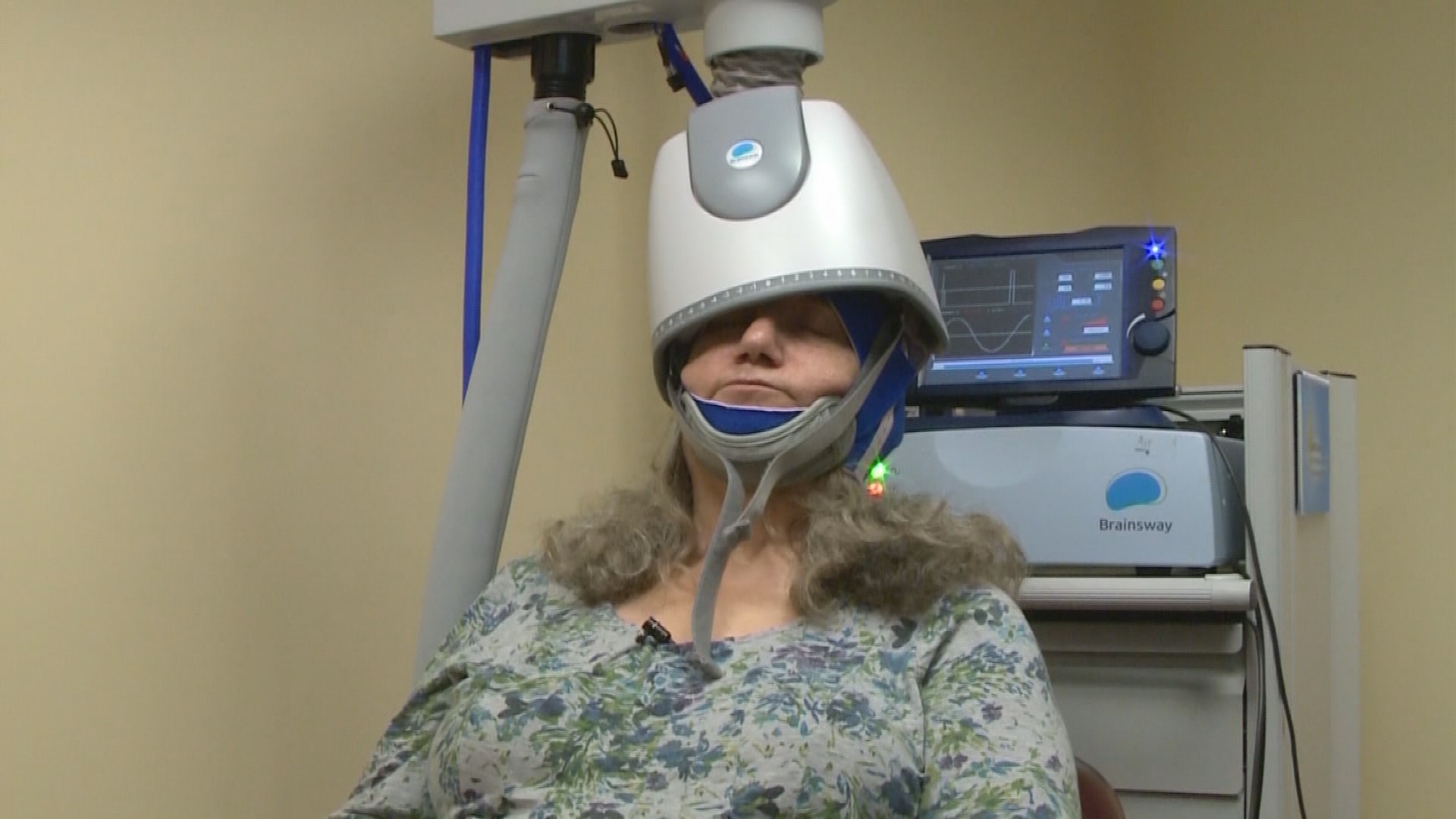If you or a loved one suffers from depression and you’re having success with anti-depressants or psychotherapy, you might try something called deep Trans-cranial Magnetic Stimulation or TMS, a sort of depression fighting helmet.
Rebecca is strapped into device, and it looks like one of those old fashioned hair dryers. As the buttons are pushed setting up the device she said, “It's like the difference between living and just existing.”
This machine is has been a game changer for Rebecca’s mental health.
The Food and Drug Administration has approved TMS for people who cannot tolerate or benefit entirely from anti-depressants.
The machine makes a pecking sound rhythmic and monotonous. It’s coming from a pulsating magnetic field, similar to what is used in MRI's.
“Kind of like you would imagine a woodpecker going on a tree. Just tap tap tap,” said Rebecca.
The magnetic energy is targeting a part of Rebecca's brain involved in mood regulation. This treatment is time consuming. At first there are daily sessions over four to five weeks. Each one lasts 20 minutes.
Dr. Wagdi Attia is Rebecca's psychiatrist and he said after the initial sessions, treatment is reduced to twice a week for two to four weeks. Then once a week.
It doesn't work for everybody. And some patients like Rebecca still take anti-depressants. But since TMS, the big lows are gone and Rebecca has joy in her life again.
“I like to read. I couldn't concentrate enough to read because of intrusive thoughts.” Rebecca said.
Rebecca also enjoys music and plays the recorder.
“Music gives me joy. To be in the moment is like a gift,” Rebecca said.
For Rebecca, TMS has allowed her to become the person she wants to be and she feels fortunate to experience relief from depression.
TMS is different than Electro-Convulsive Therapy which uses an electric shock and requires sedation. Patients are awake for TMS and it is done on an out-patient basis.
Not all insurance companies cover TMS so you should check with your provider.


